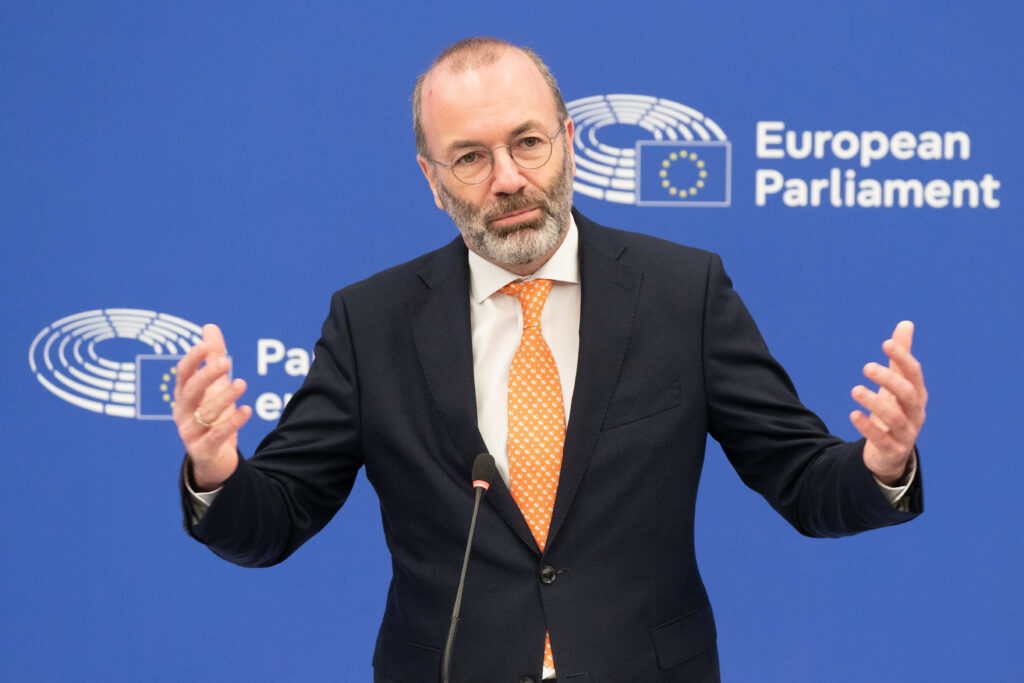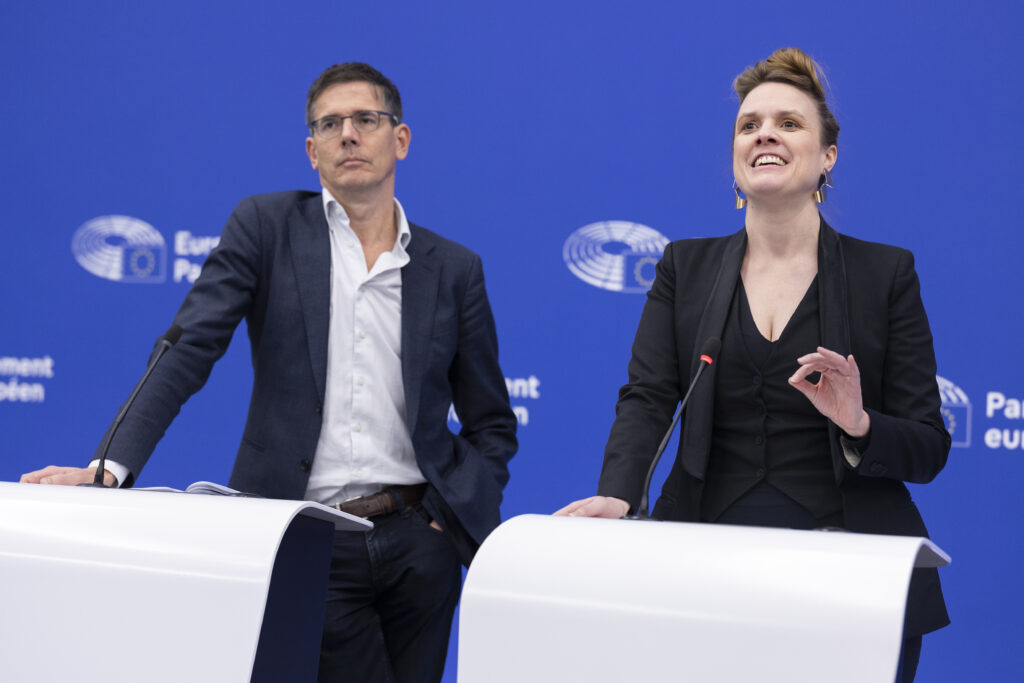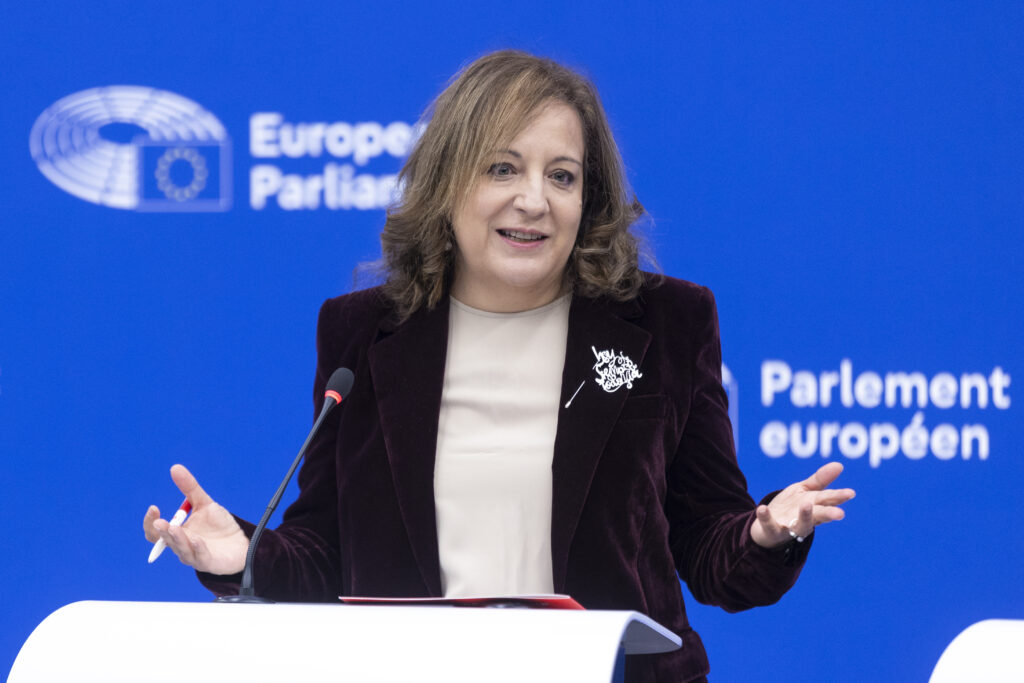Brussels – As already anticipated in recent days, in Strasbourg, the political groups in the EU Parliament are positioning themselves ahead of the vote on the new Commission headed by Ursula von der Leyen, scheduled for tomorrow (Nov. 27). The centrist majority—Populars (EPP), Socialists (S&D) and Liberals (Renew)—is expected to hold, despite the significant number of announced defections.
The novelty, compared to last July’s vote on the encore of the outgoing and incoming president, is in the support that will come (or lack) from outside the official perimeter of the pro-European coalition: the Greens are split, and several delegations will break away, as well as among the Socialists, while parts of the Conservatives and Reformists (ECR), including especially the Melonians, will support the new College. The far-right and radical left oppositions confirm their “no” to the next EU executive.
Who will vote for the second von der Leyen College
Manfred Weber, the “absolute” leader of the People’s Party (the Bavarian is chairman of both the parliamentary group and the pan-European Christian Democrats party), told reporters, “The time has come to start working, which is why the EPP will support the College and vote for it.” According to him, “the Commission’s proposal is very balanced; it wants to unite Europe politically between the different groups and from the point of view of the regions” geographically, while “also from the point of view of the agenda” it reflects the guidelines outlined by von der Leyen in the summer. Among the Populars, about 30 votes against are expected: the 22 elected with the Spanish Partido popular, the five Slovenians from SDS, and possibly the six French Républicains.

The Social Democrats, meanwhile, are on edge. The group’s final position will not be decided until late this evening, after a last-minute meeting in which the various delegations will seek a common line. The 13 French deputies led by Raphaël Glucksmann have already announced that they will vote “no”, while the 14 from Germany’s SPD are in the balance. Counting the other undecided (Belgians and Dutch, among others), von der Leyen might be missing a good 30 votes from the S&D. Group leader Iratxe García Pérez stressed that “we respect these differences” between the national parties, but that European Socialists will “rise to the occasion” and act “responsibly” to ensure that the new EU executive takes office next December 1.
Even within the ranks of Renew, there is no shortage of discontent, which could translate into a dozen abstentions in the vote on the College. But, also given the transfer of several competencies from the portfolio of Hungarian Commissioner Olivér Várhelyi to Belgian liberal Hadja Lahbib—”it’s about reducing the power of Fidesz (the party of Prime Minister Viktor Orbán, ed.) and ensuring reproductive health protection for women,” in the words of group leader Valérie Hayer—the rest of the group is expected to vote in favour.
More complicated is the situation in the Greens. Co-chairman Bas Eickhout said he expects “a small majority” (we are talking one or two people) of environmentalists to confirm support for von der Leyen bis, as they did in July. However, the environmentalist membership is deeply divided, as several delegations did not like the executive vice-presidency of the Commission given to Melonian Raffaele Fitto. Italy’s four elected members with AVS and at least three other MEPs are expected to vote against the new College, while the 15 Germans are expected to ensure a “yes” vote.

The support of the Conservatives will be essential at this point in approving the next EU executive. The Fratelli d’Italia patrol, which has 24 MEPs and is the largest in the group, will vote in favour along with the Flemish N-Va and the Czechs of ODS (3 seats each). Opposing the second von der Leyen Commission, however, will be the 20 Polish elected members of PiS.
In opposition, on the other hand, will be the Radical Left (The Left) group, which is home to the two elected members of the Italian Left in the AVS quota and the eight from the M5s, and those of the far right, the Patriots for Europe (PfE), where the eight Leghists sit, and the Sovereignists of the ESN. For the Left’s co-leader in the House, Manon Aubry, “tomorrow’s vote will enshrine the birth of the most right-wing Commission in European history, with the support of the Socialists and the Greens caving in across the board”: a vote that will see the unanimous “no” vote of the far left, which regrets that it has remained the only group “to stand up against the European right-wingers.”
Majority change?
Aubry’s words shine a spotlight on the central political node related to tomorrow’s vote, that is, the one around which the commissioner candidates’ approval process (especially the six executive vice presidents) had jammed in recent days. It is about the possible enlargement of the parliamentary majority, which from the centre-left could end up including the radical right wing of the ECR or at least some delegations such as that of FdI.
An enlargement wanted and claimed by Weber, according to whom “ECR was crucial” in approving the commissioners-designate at the parliamentary hearings stage, acting as a “responsible” force. The king is naked: “I was working on this broad majority,” he admitted during a press conference at the Europarliament, speaking of a large “constructive centre” ranging “from the Greens to the ECR, toward a reasonable part of the conservative forces” in the hemicycle to give “stability” to the work of the Parliament. For the Bavarian leader, the red lines are respect for the rule of law, Europeanism, and support for Ukraine, which makes it impossible for a “structural cooperation” with the far right but also, in the ECR area, with the Poles of PiS.
The traditional allies of the EPP are opposing a shift of the centre of gravity to the right. According to García Pérez, the Socialists will work “to broaden the majority so that the Greens can be part of this pro-European platform.” “The S&D group has negotiated with the EPP, with Renew and with the Greens; these are the forces our group will talk to” during the legislature that has just begun, she reiterated, closing the door on the Conservatives: “The Socialist group is committed to working with the political forces that want to send Europe forward, and under no circumstances does EcCR fall under this condition.”

In principle, the argument also applies to liberals. “The majority of this European Parliament, for me, is around the three groups EPP, S&D, and Renew,” Hayer pressed, arguing that “this is clearly the majority that works, and you have to make it with the Greens who are an extremely constructive pro-European group.” As for the ECR, however, the group leader let slip that “it is a very heterogeneous group” and that one cannot put “the French Reconquête or the Polish PiS on the same level with the Belgian N-Va,” admitting that there is “this distinction between the delegations we can work with,” as the Populars claim. “As for the rest, no structural political cooperation,” he assured. We shall see.
However, Eickhout drew another distinction, this time within the EPP. “It is very clear that Ursula von der Leyen is distancing herself from Manfred Weber‘s strategy,” he noted, speaking to reporters. According to the environmentalists’ co-chief whip, the leader of the Populars “tried to drive out the Greens and failed to do so” and, as a result, “now says he is very happy to have a large majority.” But, Eickhout continued, the chairwoman of the EU executive “has made it very clear that the coalition she wants to work with is the pro-European coalition” consisting of the EPP, S&D, Renew, and the Greens, that is, “the only stable majority that is foreseeable” in this House. He was echoed by his counterpart Terry Reintke, who said, “von der Leyen belongs that part of the EPP that wants to work with the pro-European democratic forces” while Weber would have “different interests.”
The European Commission’s numbers
In tomorrow’s crucial vote, the president of the Commission will have to obtain a simple majority of cast votes: if all 720 members were present and voted, the magic number would be set at 361, but in reality, the “technical” sufficiency, considering abstainers and absentees, is lower. The problem of going below that, however, would be political. As things stand, it appears that von der Leyen will not be able to repeat the result of July, when she garnered 401 votes. On that occasion, her reelection had been secured by the support of the Greens, which had compensated for defections in the three centrist groups. At the same time, other delegations that will vote “yes” tomorrow opposed it four months ago (such as that of FdI).
In July 2019, von der Leyen had been elected president for the first time with 383 votes, just nine more than the absolute majority at the time. She had been saved by three nationalist and populist parties: Poland’s PiS, Hungary’s Fidesz, and Italy’s M5s, all of whom will speak out against a second term tomorrow. At the time of the inauguration of the entire College in November five years ago, there were 461 votes in favour, 157 against, and 89 abstentions.

![Ursula von der Leyen. La presidente uscente della Commissione europea cerca l'inizio del secondo mandato con il voto del Parlamento europeo alla squadra di commissari [foto: European Commission]](https://www.eunews.it/wp-content/uploads/2024/11/vld-2411-350x250.jpg)





![Il presidente della Repubblica, Sergio Mattarella, con la presidente della Commissione europea, Ursula von der Leyen [Bruxelles, 21 maggio 2025. Foto: Emanuele Bonini per Eunews]](https://www.eunews.it/wp-content/uploads/2025/05/mattarella-vdl-120x86.png)

